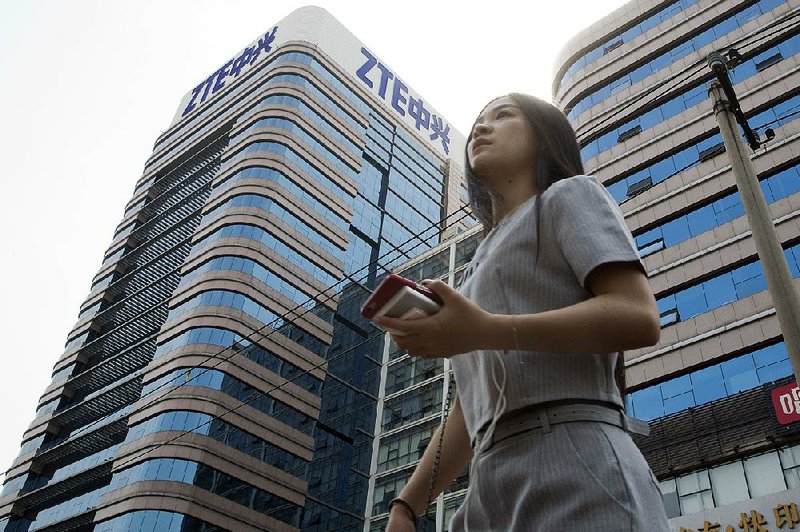U.S. lawmakers on Wednesday pressed Chinese President Xi Jinping's top economic adviser to stop what they called unfair trading practices as the two nations try to step back away from the brink of a trade conflict.
"I urged the Chinese vice premier to seize this moment in time to address these lasting concerns and to continue to grow this relationship in a more fair way," said Kevin Brady, the Republican chairman of the House Ways and Means Committee that oversees trade issues.
Brady spoke to reporters in Washington after his committee met with Chinese Vice Premier Liu He, who is visiting Washington this week for talks with President Donald Trump's administration on ways to resolve a brewing trade dispute. Liu's visit comes after a trip to Beijing earlier this month by a high-level U.S. delegation led by Treasury Secretary Steven Mnuchin.
Liu told the group of lawmakers that he wanted to address trade imbalances by increasing Chinese demand for American products, Brady said. Liu didn't speak to reporters.
[LIST: See all products targeted by U.S.]
"The vice premier stated that he was here to listen to our concerns and he recognizes there are problems in this trade relationship," Brady said.
Earlier Wednesday, Trump continued to defend the lifeline he offered to Chinese telecommunications-equipment maker ZTE Corp., insisting that trade talks with Beijing are just getting started. "Nothing has happened with ZTE except as it pertains to the larger trade deal," Trump said in a series of tweets Wednesday.
The president surprised many in Washington over the weekend by saying he's working with Xi to help ZTE "get back into business, fast." The Chinese company has been crippled by a U.S. decision to cut off its access to key components from American suppliers for making false statements in a sanctions case.
Trump's reversal was condemned by both Republican and Democratic lawmakers, and it raised questions about whether the president was softening his approach in trade negotiations with China. Sen. Marco Rubio, R-Fla., said the move was a sign that the U.S. was about to "get out-negotiated by China again."
Brady said the issue of ZTE didn't come up during his meeting with lawmakers.
Industry experts say that in the complex world of modern electronics, the fate of ZTE Corp. could directly or indirectly affect scores of U.S. companies and thousands of American jobs.
A giant with some 80,000 employees spread in 160 countries, ZTE Corp. sold 44 million smartphones globally last year, about half of them to American consumers.
[DOCUMENT: Read full proposal from U.S.trade representative]
Inside those phones are lots of American components and know-how, including Google's Android operating system. Last year, ZTE procured components and software from 211 U.S. companies. Those companies span the country from Massachusetts to California.
Trump is not only at loggerheads with intelligence agency chiefs over the threat that ZTE may pose to U.S. national security; a move to help the company would also reverse a decision by his own Commerce Department, which last month barred U.S. companies from selling components and software to ZTE for seven years after finding that the firm breached U.S. sanctions on Iran.
For lots of American consumers, ZTE Corp. might be largely unknown.
"They are a low-end provider, $100 to $150 smartphones. They are really under the radar," said Jeff Fieldhack of Counterpoint Technology Market Research. "People don't hang on to them long, like [they do] an iPhone or a Galaxy, so they have high churn."
The company, which is one of the world's five biggest electronics manufacturers, sells smartphones, tablets and mini-projectors as well as wireless equipment, set-top cable boxes, transmitters and receivers.
Uncertainty over relations between the U.S. and China has roiled financial markets and raised concerns among businesses worried about a trade war. Trump has threatened to impose tariffs on as much as $150 billion in Chinese imports to punish Beijing for violating American intellectual-property rights. China has vowed to retaliate on products including U.S. soybeans and airplanes.
Liu is expected to spend four days in the U.S. for trade talks.
Information for this article was contributed by Erik Wasson, Andrew Mayeda and Anna Edgerton of Bloomberg News and by Tim Johnson of the Tribune News Service.
Business on 05/17/2018
